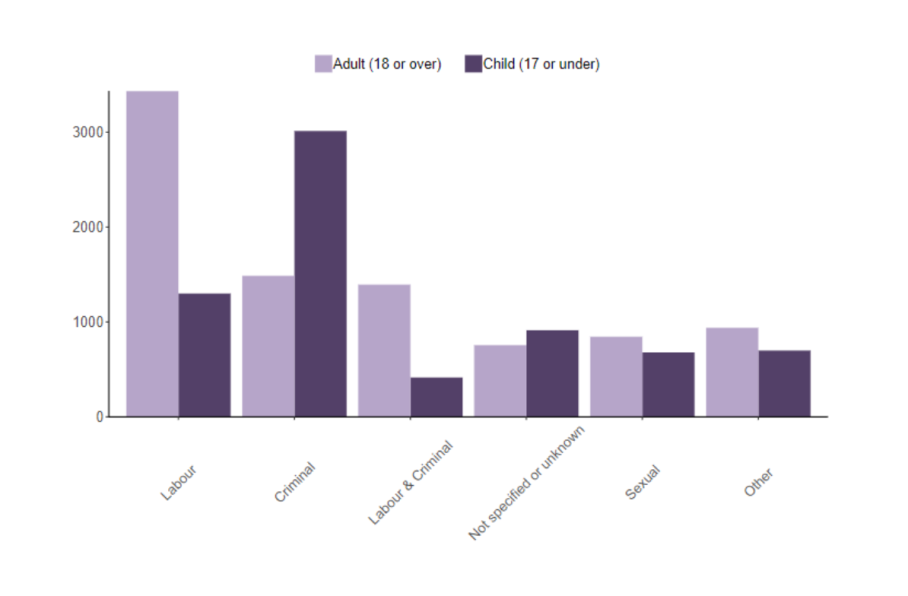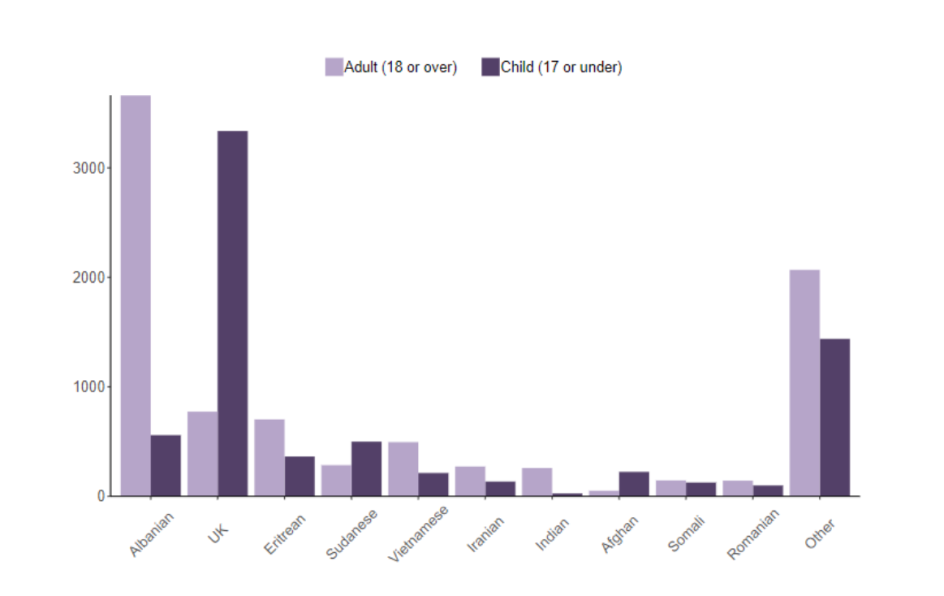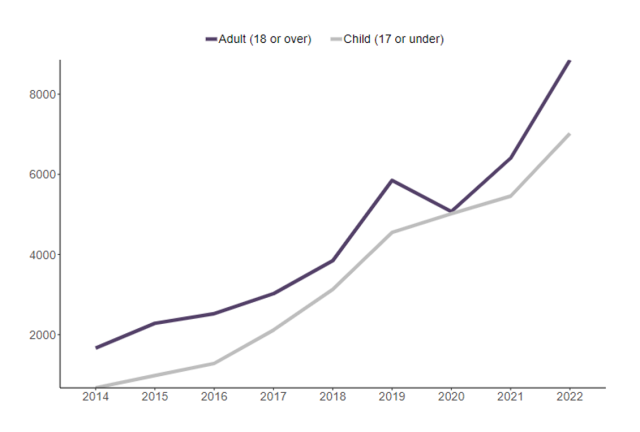

Modern Slavery today
A crime that reaches into every community
A crime that reaches into every community
Modern slavery is a crime in which people are exploited through fraud, deception, and coercion. It takes many forms, such as trafficking, forced labour, and domestic servitude. Victims are often trapped by their traffickers using various tactics, including confinement, violence, and the withholding of wages and documents. Modern slavery can happen in any community and often goes unnoticed, with victims working in various industries, including private residences. The hidden and complex nature of modern slavery makes it difficult to determine its true scale. Victims are often unseen, unable to leave their situation, or too scared to come forward. However, when victims do come forward, the full extent of their ordeal becomes apparent, and the journey to recovery can begin.

"I’ve never been to a place where everything is given for free, without having to use shameful ways to pay for it. God bless"
Quote from a female client
Last year 16,938 people were referred to the Home Office as potential victims of modern slavery.
It is 33% higher than 2021 and it is the highest number of referrals for any year.
Modern slavery referrals have more than doubled in the last five years.
2022 saw the highest number of reasonable and conclusive grounds decisions with almost 17,000 reasonable grounds and just over 6,000 conclusive grounds decisions made; of these, 88% of reasonable grounds and 89% of conclusive grounds decisions were positive.
Last year 41% or four out of every ten people referred as potential victims of modern slavery, were 17 years of age or under.

The three most common nationalities referred for modern slavery were Albanian, British and Eritrean.
Source: SCA, IECA

The National Crime Agency estimates that there are between 6,000 and 8,000 offenders involved in exploitation of people in the UK.
In 2020/21 the CPS prosecuted 335 defendants for modern slavery offences.
The number of Under-17s referred as potential modern slavery victims rose by 29% in just one year.
Four out of every 10 potential modern slavery victims last year were rescued from labour and criminal exploitation.
Source: SCA, IECA

Victims can be any age, race or gender. Some don’t even understand that they have been exploited or are entitled to help or support.
You can make a huge difference by knowing the signs of possible exploitation and how to report it.
If you have any concerns about potential victims, do not confront them as this could make them more vulnerable. Instead, contact:
If you’d like more information about spotting the signs of modern slavery, or to discuss a potential issue in your community, please call us on 0800 06 999 16.
